Synopsis
A Polar Bear and her cub go on the hunt.
- Programme: The Blue Planet
- Episode: Frozen Seas
- Channel: BBC One
- Broadcast year: 2007
- Biology | Ecology | Ecosystems, extinction and gene pools | Predator and prey populations
Licence: ERA Licence required
UK only
Staff and students of licensed education establishments only
Cannot be adapted
Add Notes
More clips from The Blue Planet
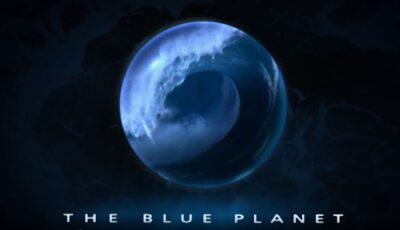
2: The Deep | The Blue Planet
2: The Deep | The Blue Planet
David Attenborough narrates a natural history of the oceans to uncover the strange, otherworldly creatures living in the depths of the ocean.

3: Open Ocean | The Blue Planet
3: Open Ocean | The Blue Planet
David Attenborough narrates a natural history of the oceans. The deadly game of hide-and-seek played by the sea's charismatic hunters - whale...

4: Frozen Seas | The Blue Planet
4: Frozen Seas | The Blue Planet
A natural history of the oceans. A look at the survival techniques of creatures that endure the harsh conditions of the Arctic and Antarctic.

5: Seasonal Seas | The Blue Planet
5: Seasonal Seas | The Blue Planet
David Attenborough narrates a natural history of the oceans, exploring the richest waters on Earth, where the annual cycle of the sun driv...

6: Coral Seas | The Blue Planet
6: Coral Seas | The Blue Planet
David Attenborough narrates a natural history of the oceans. Developed over centuries, coral reefs house fragile ecosystems, but they too hav...

7: Tidal Seas | The Blue Planet
7: Tidal Seas | The Blue Planet
David Attenborough narrates a natural history of the oceans. As snails surf the waves in pursuit of a meal, how do the tides create opportuni...

8: Coasts | The Blue Planet
8: Coasts | The Blue Planet
David Attenborough narrates a natural history of the oceans, examining how animals from in and around the sea use the constantly changing coastal...
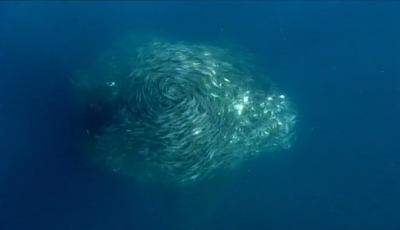
Bait ball attack | The Blue Planet
Bait ball attack | The Blue Planet
Swimming at speed, a school of anchoveta near the surface detect the vibrations of approaching predators. They close into a tight ball as ...
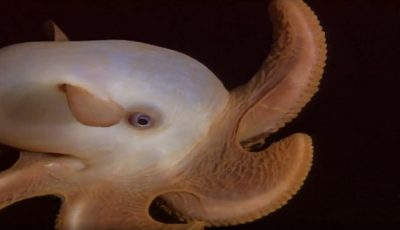
Dumbo octopus | The Blue Planet
Dumbo octopus | The Blue Planet
The amazing 'dumbo' octopus has flaps of skin between its tentacles and large, flapping 'ears,' allowing it to hover effortlessly above the s...
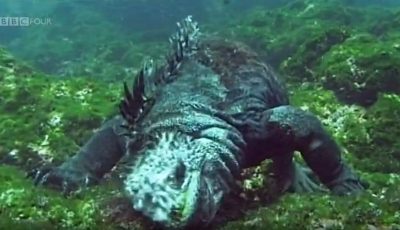
Galapagos lizards | The Blue Planet
Galapagos lizards | The Blue Planet
The marine iguanas of the Galapagos are the world's only sea going lizards.
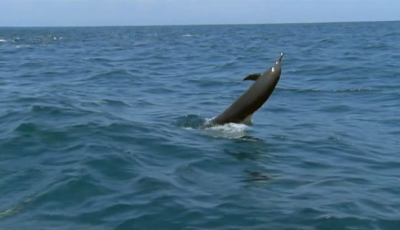
Let's Twist Again | The Blue Planet
Let's Twist Again | The Blue Planet
A super pod of spinner dolphins gather together as feeding has been good in the area.
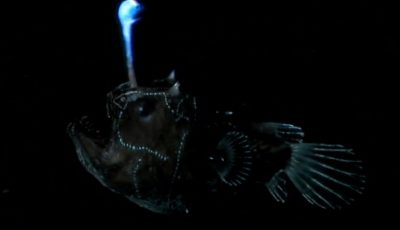
Light Lures | The Blue Planet
Light Lures | The Blue Planet
A deep sea angler fish flashes in the darkness to attract prey.
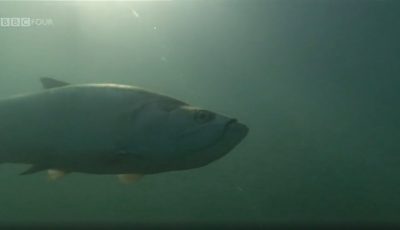
Mangrove predators | The Blue Planet
Mangrove predators | The Blue Planet
When unusually high spring tides flood the mangrove swamps, it allows the larger predators access to these hard to reach places. Mangrov...
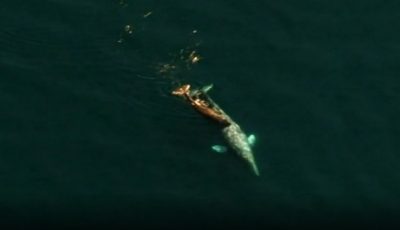
Marine predators and scavengers | The Blue Planet
Marine predators and scavengers | The Blue Planet
The scavengers of the deep ocean rely on predators at the surface to provide their nutrition.
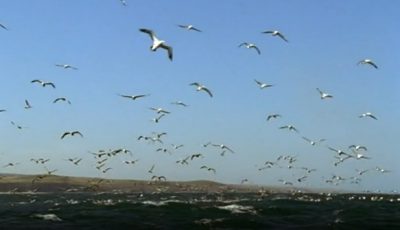
Marine predators team up | The Blue Planet
Marine predators team up | The Blue Planet
A variety of marine predators team up to capitalise on a large group of migrating sardines.
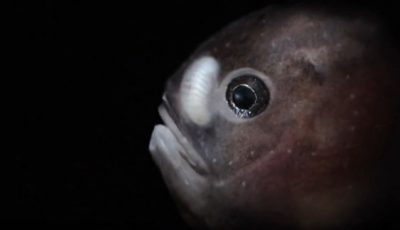
Partner for life | The Blue Planet
Partner for life | The Blue Planet
Male and female angler fish have a brilliant mutual solution to the problem of finding a mate in the vast emptiness of the deep sea.
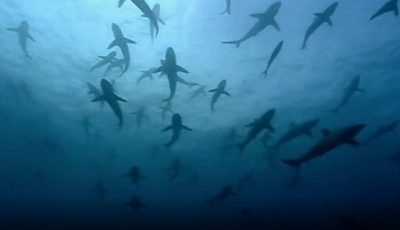
Shark oasis | The Blue Planet
Shark oasis | The Blue Planet
David Attenborough explore the role of changeable deep ocean currents in creating an oasis for a variety of marine life.
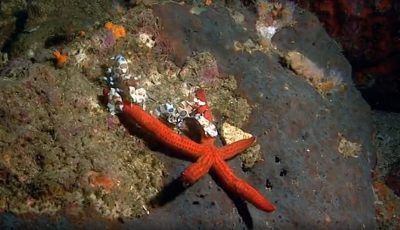
Sticky starfish | The Blue Planet
Sticky starfish | The Blue Planet
The problem with starfish is that they have minds of their own and five large sticky arms. By the time the shrimps have prised off one arm,...
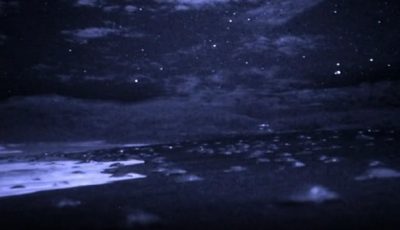
Synchronised turtle arribada | The Blue Planet
Synchronised turtle arribada | The Blue Planet
The lunar cycle dictates the time and date of mass nesting by ridleys turtles in Costa Rica.

The Blue Planet
The Blue Planet
David Attenborough narrates a natural history of the oceans. We travel to the depths of the seas to reveal a spectacular variety of life, some never filmed b...
More resources about Living Things and Their Habitats
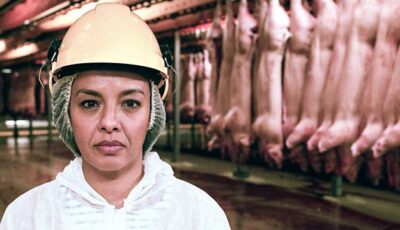
Meat: A Threat to Our Planet?
Meat: A Threat to Our Planet?
From colossal farms in America to the destruction of the Amazon, Liz Bonnin investigates how our hunger for meat is killing our planet.
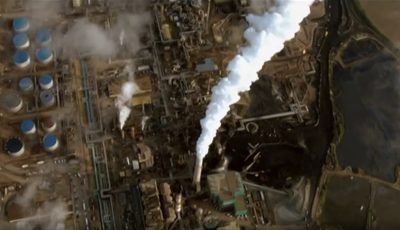
Greenhouse Gases | Climate Change: The Facts
Greenhouse Gases | Climate Change: The Facts
A discussion of the devastating impact of burning fossil fuels.
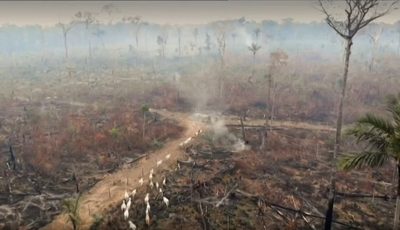
Amazon deforestation | Meat: A Threat to Our Planet?
Amazon deforestation | Meat: A Threat to Our Planet?
Liz Bonnin witnesses the devastation of the Amazon rainforest from the sky.

The Blue Planet
The Blue Planet
David Attenborough narrates a natural history of the oceans. We travel to the depths of the seas to reveal a spectacular variety of life, some never filmed b...
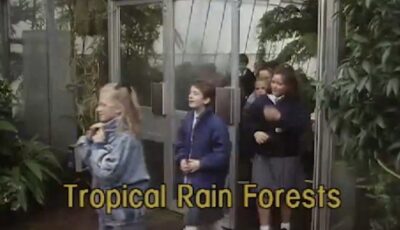
03: Destroying the Forest | Landmarks
03: Destroying the Forest | Landmarks
By the next century, the rainforests of the world could have disappeared for ever, destroyed by outside influences and economic pressur...
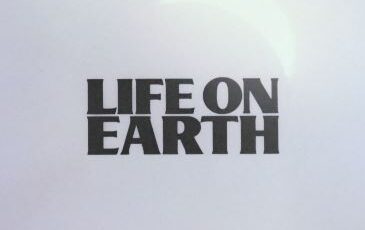
9: The Rise Of The Mammals | Life On Earth
9: The Rise Of The Mammals | Life On Earth
Mammals have proved to be one of the most adaptable products of evolution. David Attenborough looks at their evolution from reptil...
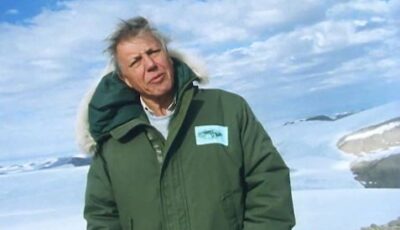
Plants in cold environments | The Private Life of Plants
Plants in cold environments | The Private Life of Plants
David Attenborough describes how certain plant species adapt to cold weather.
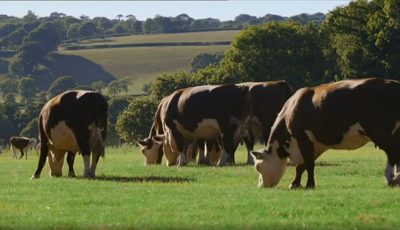
Sustainable meat production | Meat: A Threat to Our Planet?
Sustainable meat production | Meat: A Threat to Our Planet?
Liz Bonnin discusses the importance of understanding the process behind the meat we eat (warning: this clip conta...
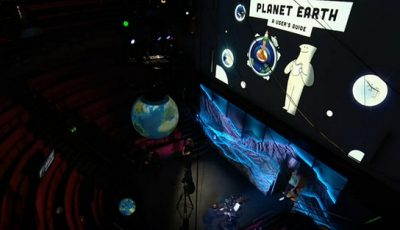
The carbon cycle and global warming | Royal Institution Christmas Lectures
The carbon cycle and global warming | Royal Institution Christmas Lectures
The carbon cycle process is being overwhelmed by the amount of carbon dioxide released into the at...

04: Saving the Forest | Landmarks
04: Saving the Forest | Landmarks
Despite the destruction, there are ways to save the forest, by careful harvesting, protecting, learning, replanting, policing - and campaig...
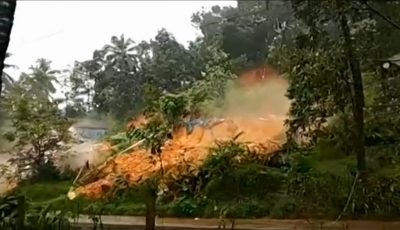
Biodiversity loss | Extinction: The Facts
Biodiversity loss | Extinction: The Facts
An exploration of the devastating impacts of the loss of insect and plant biodiversity.
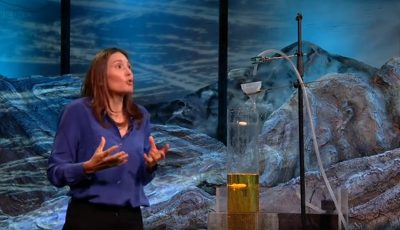
Carbon in the ocean | Royal Institution Christmas Lectures
Carbon in the ocean | Royal Institution Christmas Lectures
Dr Helen Czerski explains how carbon is incorporated into the ocean and how the increase in carbon intake is impac...
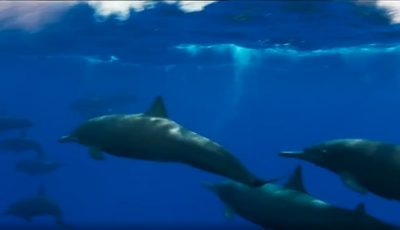
The boiling sea | Blue Planet II
The boiling sea | Blue Planet II
Lantern fish provide a rare banquet for some of the ocean’s top predators.

01: The Living Forest | Landmarks
01: The Living Forest | Landmarks
The Living Forest looks at all the animals & plants that live in the forest on the ground to the forest canopy, & shows how they live in ba...
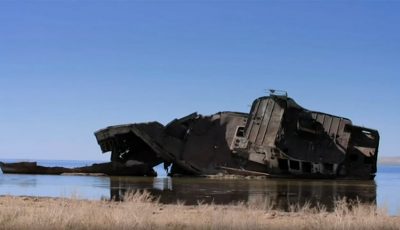
Cotton production and the Aral Sea crisis | Stacey Dooley
Cotton production and the Aral Sea crisis | Stacey Dooley
Stacey Dooley visits the Aral Sea Basin in Kazakhstan, which has almost entirely dried up due to cotton production.
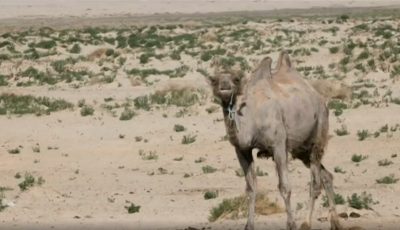
Environmental impact on the Aral Sea | Stacey Dooley
Environmental impact on the Aral Sea | Stacey Dooley
Stacey Dooley visits the Aral Sea Basin in Kazakhstan, which has almost entirely dried up due to cotton production.
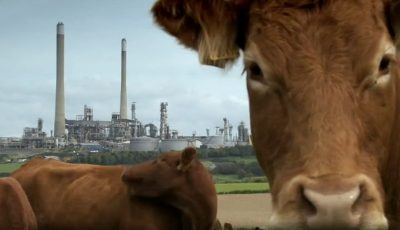
Fossil fuels behind every day food | Natural World
Fossil fuels behind every day food | Natural World
Rebecca Hosking goes through the fossil fuels involved in creating a shop bought sandwich.
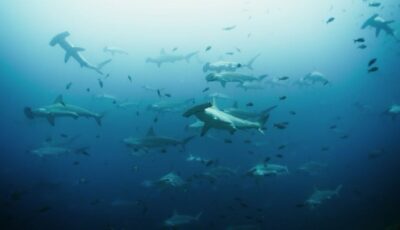
Importance of marine protected areas | A Perfect Planet
Importance of marine protected areas | A Perfect Planet
Spec references J247: B6.1b, B6.1c, B6.1d J250: B6.1b, B6.1c. How an increase of carbon dioxide and overfishing impac...
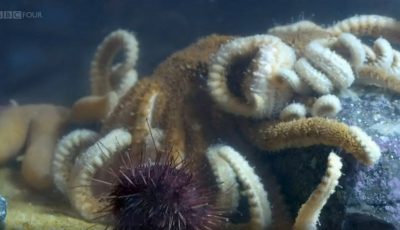
Life in icy environments | The Secret Life of Ice
Life in icy environments | The Secret Life of Ice
Dr Gabrielle Walker investigates how life has evolved in icy underwater environments.
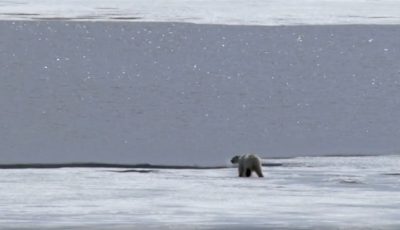
Polar bears' habitat under threat from glacial melt | Planet Earth
Polar bears' habitat under threat from glacial melt | Planet Earth
David Attenborough discusses the effects on polar bears of melting Arctic ice caused by global warming.
More from Sir David Attenborough

2: Ocean | Planet Earth III
2: Ocean | Planet Earth III
A groundbreaking journey from tropical shallow seas to the mysterious depths. Sir David Attenborough reveals extraordinary new worlds and unique ...
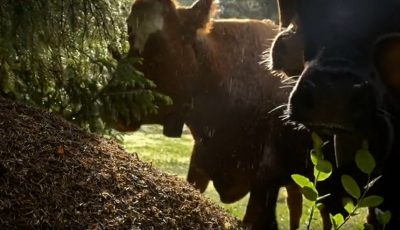
Ants vs Cows | Natural World
Ants vs Cows | Natural World
The super colony unites in a spectacular attack to defend their nest from curious cows.
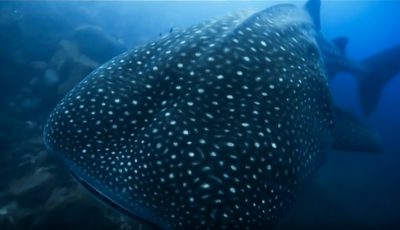
The mystery of the whale shark nursery | Blue Planet II
The mystery of the whale shark nursery | Blue Planet II
Nutrients from the deep provide sustenance for a large gathering of sea life.
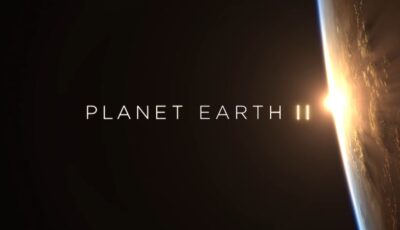
3: Jungles | Planet Earth II
3: Jungles | Planet Earth II
Jungles provide the richest habitats on the planet - mysterious worlds of high drama where extraordinary animals attempt to survive in the most ...
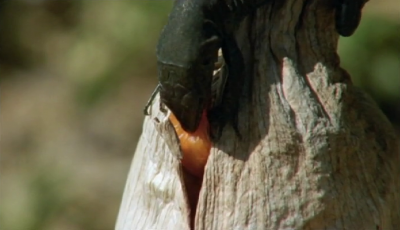
Lizard Heaters | Life in Cold Blood
Lizard Heaters | Life in Cold Blood
Wall lizards take advantage of foul-smelling dead-horse arums.

How Many People Can Live on Planet Earth? | Horizon
How Many People Can Live on Planet Earth? | Horizon
Naturalist Sir David Attenborough investigates whether the world faces a population crisis and if it is the duty of indiv...
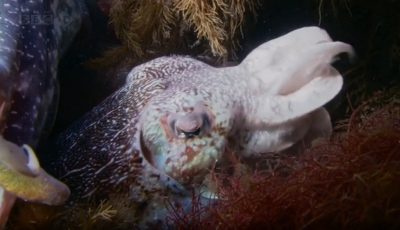
Cross-dresser | Life
Cross-dresser | Life
Some male cuttlefish are too small to fight for a mate, so have to come up with a sneaky plan if they are to get their way with the girls. Approaching a...

11: Ocean Deep | Planet Earth
11: Ocean Deep | Planet Earth
Series showing our planet in its natural glory. A look at the largest of all habitats, the ocean, which encompasses 90 per cent of all the livi...
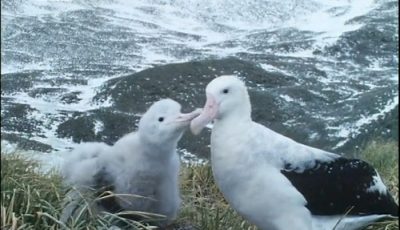
Weighty wanderers | Life in the Freezer
Weighty wanderers | Life in the Freezer
With a wingspan of over 3m, the wandering albatross has the biggest feeding range of any bird. Throughout the winter they remain in n...
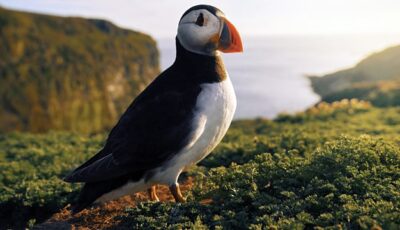
Our Precious Isles | Wild Isles
Our Precious Isles | Wild Isles
David Attenborough celebrates the rich variety of habitats in our wild isles, the existence of which is critical for the survival of species ...
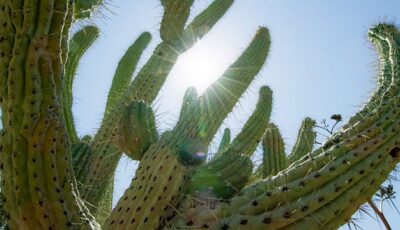
4: Desert Worlds | The Green Planet
4: Desert Worlds | The Green Planet
Desert plants spend decades in suspended animation waiting for rain, or they travel to find it. They survive using weapons, camouflage an...
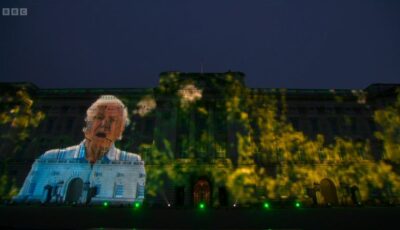
David Attenborough | The Queen's Platinum Jubilee
David Attenborough | The Queen's Platinum Jubilee
David Attenborough speaks about the environment. Also, includes footage of the drones that turn into animals.
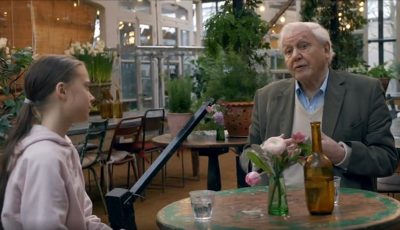
Greta meets David Attenborough | Greta Thunberg: A Year to Change the World
Greta meets David Attenborough | Greta Thunberg: A Year to Change the World
Greta Thunberg and David Attenborough discuss their hopes for the future of the planet.
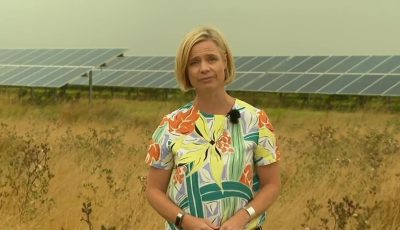
COP26 delegates and climate scientists | Climate Change: The Facts
COP26 delegates and climate scientists | Climate Change: The Facts
COP26 delegates and climate scientist Hannah Cloke discuss their hopes for the COP26 conference.
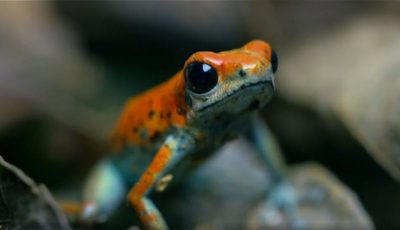
Poison dart frogs battle it out | Attenborough's Life in Colour
Poison dart frogs battle it out | Attenborough's Life in Colour
A poison dart frog fights off a contender until he's sufficiently warned off.
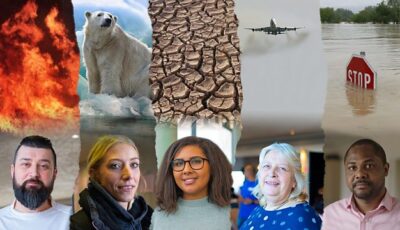
The People v Climate Change
The People v Climate Change
Meet the 108 ordinary Brits who Sir David Attenborough says we should listen to. This warm and honest documentary reveals how everyday people fee...
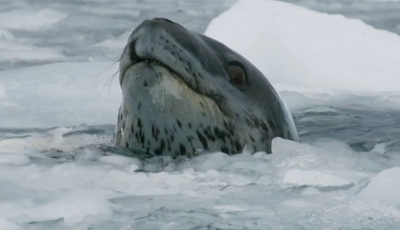
Leopard seal vs penguin | Seven Worlds, One Planet
Leopard seal vs penguin | Seven Worlds, One Planet
Glaciers crumbling more quickly, due to climate change, give the advantage to leopard seals hunting penguins.
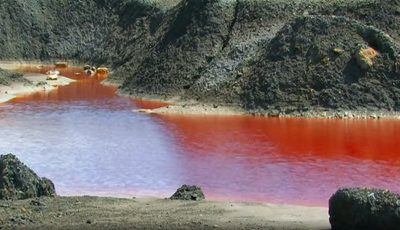
Consumption and waste | Extinction: The Facts
Consumption and waste | Extinction: The Facts
The impact of consumption and waste on biodiversity.
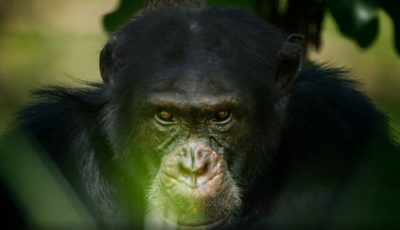
David, The Ruler | Dynasties
David, The Ruler | Dynasties
One strong and determined leader, David, rules the land, but can trust no one.

Marine predators and scavengers | The Blue Planet
Marine predators and scavengers | The Blue Planet
The scavengers of the deep ocean rely on predators at the surface to provide their nutrition.
